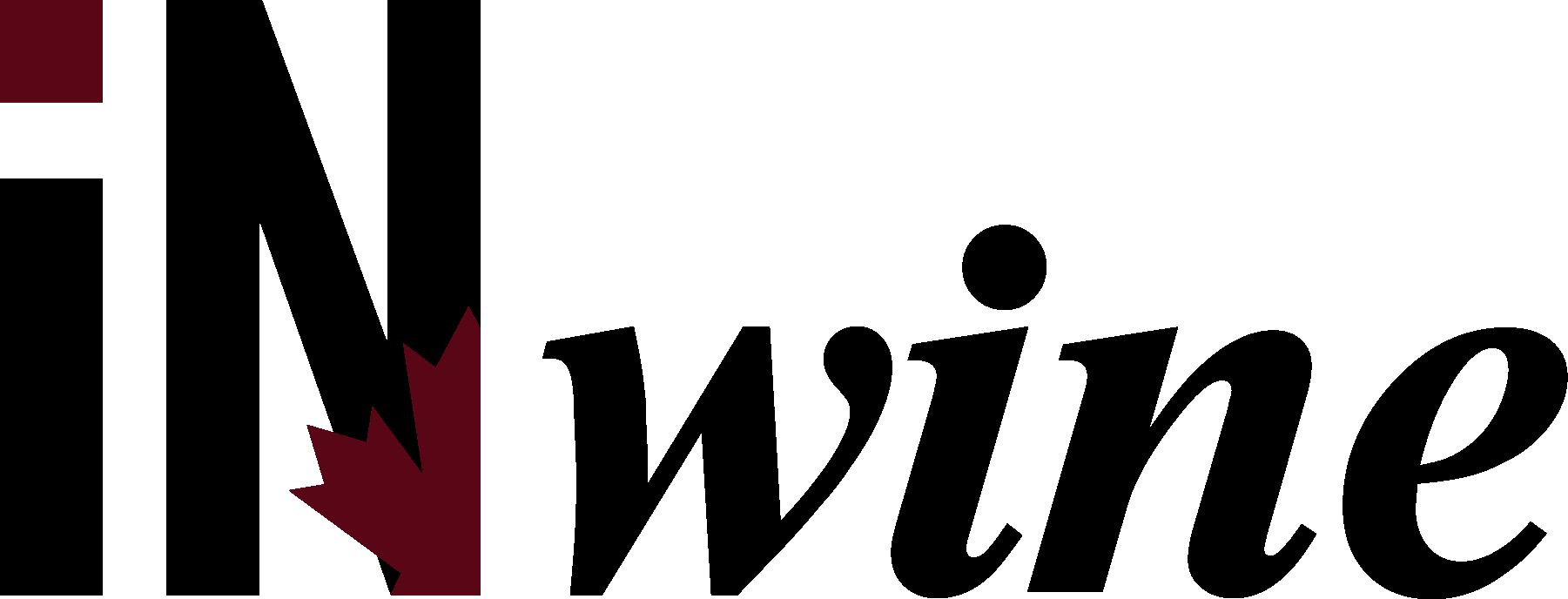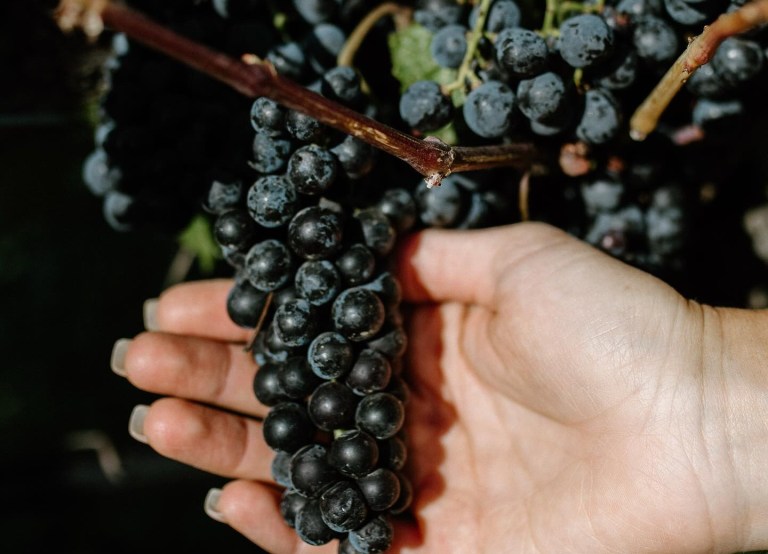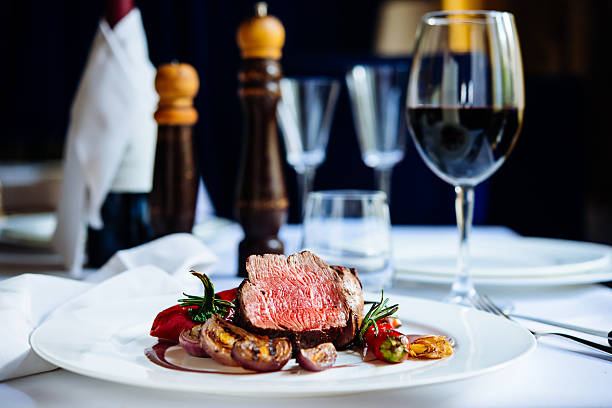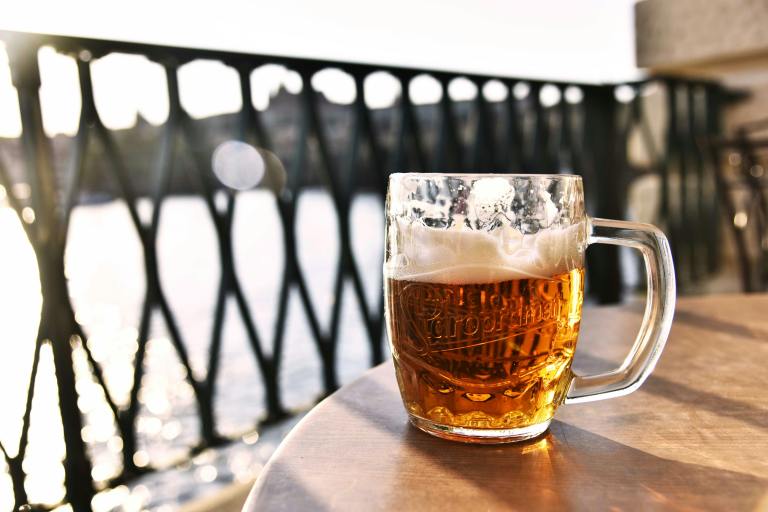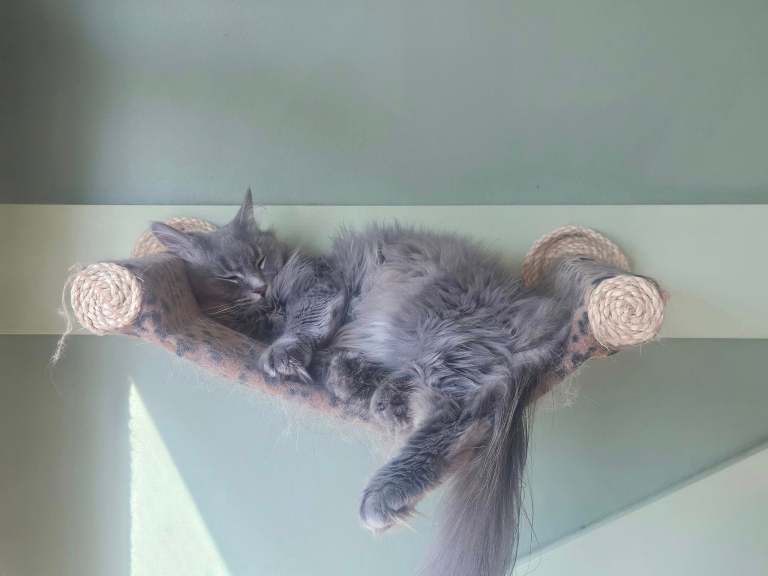
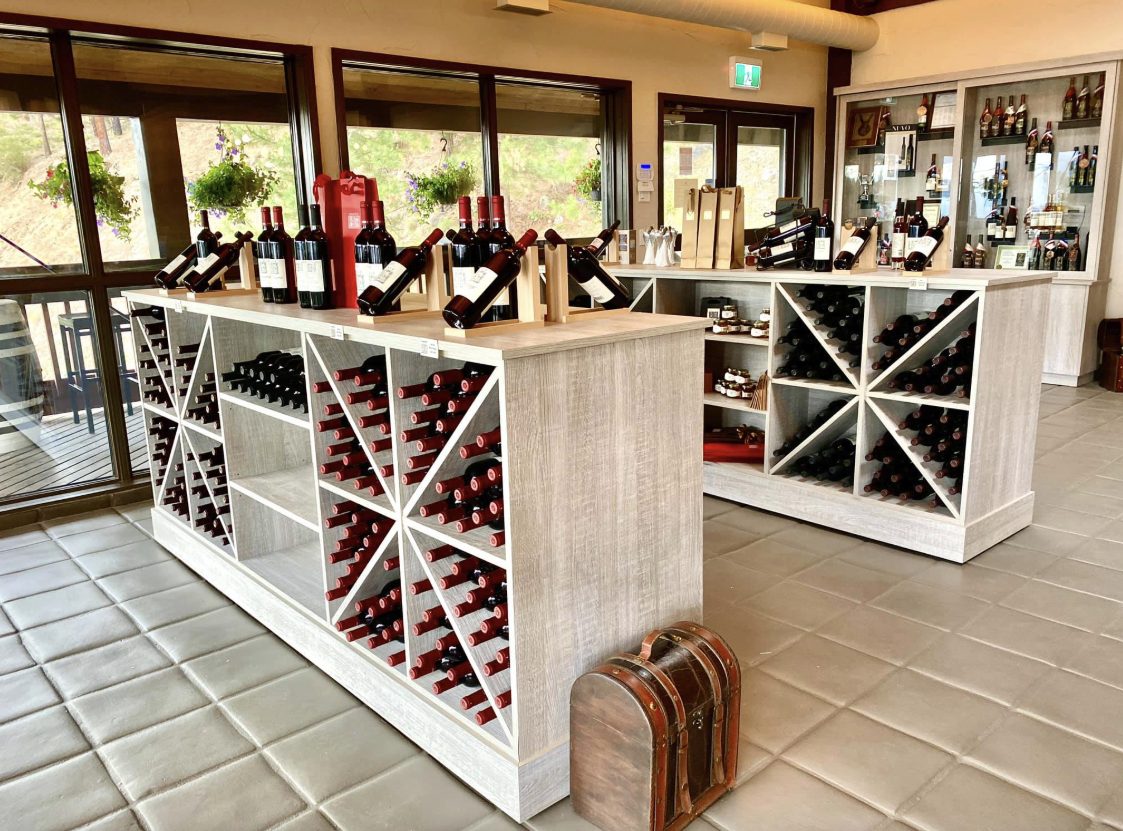
From bad wine to fake documents, Peachland winery costs buyers $2.3M after sale sours
A Peachland winemaker who incorrectly said his wine had been served at the Oscars and a royal wedding has been awarded $2.3-million after an agreement about the purchase of his winery went sour.
According to a Nov. 6 BC Supreme Court decision, former Peachland winery owner Walter George Huber took legal action against the new owners, Bella Valley Enterprises, arguing he was still owed $2-milllion for inventory and they had no right to fire him as the vineyard’s chief wine maker.
The Chinese couple who own Bella Valley Enterprises countersued, accusing Walter of adulterating wine and fraudulently fabricating documentation.
The couple argued the wine inventory was included in the purchase and regardless, it was “faulted and unsaleable.”
They accused Walter of inducing them to purchase the winery.
The case involves the Hainle winery, which was purchased in the early 2000s by Walter’s parents.
In 2016, Walter put the winery up for sale for $3.9 million and had interest from Chinese couple Bella Huang, who goes by Bella, and Xifu Zhuang, who goes by Tony. The couple own a company in China that imports wines from Canada.
Thinking that owning their own winery and selling direct to China would be a better business proposition than their current model, they looked at purchasing a winery.
They met Walter and tasted some wine, and later Walter visited China, where Tony showed him around China’s wine region and promoted Hainle’s wines.
“Walter was interviewed by a television station during which he regaled some of Hainle’s history, position in the world of winemaking, awards and accomplishments, many of which he made up,” Justice Gary Weatherill said in the decision.
The couple ultimately purchased the winery by way of a share purchase agreement and kept Walter on as its chief winemaker at $125,000 a year.
However, not long afterwards, things started to fall apart.
“It is yet another example of the ills that can befall parties when they bypass their lawyers and attempt to paper agreements on their own, especially when the parties are from different ethnic cultures and agreements are drafted in a language other than the drafter’s native tongue,” BC Supreme Court Justice Gary Weatherill said.
The 237-page decision goes through a lengthy history of the business relationship, which involved neither of the new owners speaking English and Tony living in China while Bella lived in Vancouver.
“Starting in September 2019, Bella began to spend more time at the winery. By early 2020, when the third-party investors she was hoping for backed out citing quality issues with Hainle’s wines, she began to have doubts about Walter’s wine-making abilities,” Justice Weatherill said in the decision. “In January 2020, Bella, Tony and Walter met at the winery and a confrontation ensued related to the quality and price of Walter’s wine. Walter insisted that the wines he was producing were of top quality while Tony maintained that the wines were not saleable in China.”
Shortly after the confrontation, Bella saw Walter removing boxes of business records from the winery. She demanded he return them, and he did.
“His attempt to remove records belonging to Hainle increased Bella’s overall concerns about him,” the decision reads.
The decision says in early 2020, Bella hired wine consultant Rob Ingram who told her that the quality of Walter’s wines was poor and that she needed to find another winemaker.
Consultants were brought in to taste the inventory and they found much of it had oxidized and turned bad.
Shortly afterwards, Walter was fired.
The decision says the winery had claimed that it had produced one of the best Pinot Noirs in the world, had an icewine sell for $370 a bottle, and its products had been served at prestigious events.
“During the litigation, it became evident, and Bella became aware, that some of these recognitions, including wine being served at the Oscars and at a Royal Wedding were fictitious. Nevertheless, Bella continued to have the recognitions prominently on display at Hainle’s wine shop,” the decision reads.
Justice Weatherill said that Walter, “motivated by an inflated ego” falsely represented that his wines had won awards which they hadn’t. He’d also “held out some of his wines to be wines they were not.”
However, Justice Weatherill said this wasn’t what drove the Chinese couple to buy the winery.
“Without a modicum of due diligence, such as engaging knowledgeable people to assess and evaluate Hainle’s business, production capacity, equipment, infrastructure, quality of the Inventory and ability to turn a profit, and without reviewing any financial statements, Tony decided to purchase Hainle at the full asking price and have Bella, who had no prior winery or business experience, own and operate it,” the Justice said.
Justice Weatherill said that Hainle had always been a small, boutique winery that catered to a traditional Eastern European wine palate, and had never been and wasn’t able to produce the type of wines that the Chinese market wanted.
“Yet for unexplained reasons, Tony concluded that Hainle could produce substantial quantities of the wine that would fit the Chinese wine palate and would meet what he felt was a significant Chinese demand,” the decision reads.
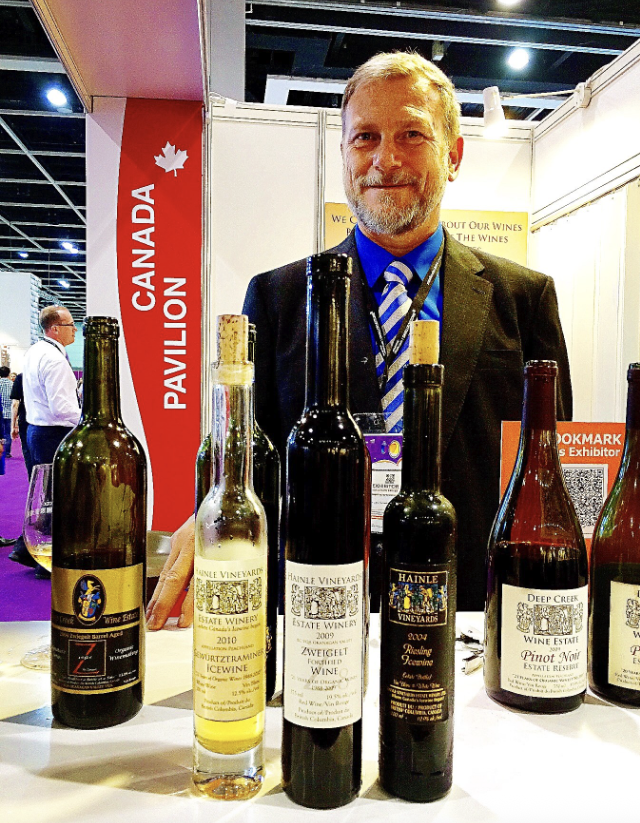
Throughout the 27-day trial, numerous witnesses and experts testified, including wine experts, the Penticton Wine Laboratory, and the BC VQA.
The Justice highlighted some of Walter’s exaggerations and misrepresentations.
He’d falsely said his wine was served at Prince William and Kate Middleton’s wedding, that a bottle had sold at auction in London for $2.7 million, and used labels on icewine shipped to China that stated it was BC VQA when it wasn’t.
He’d also paid $2,500 for a fake PhD certificate, which he put up in the winery tasting room.
“He also displayed a fake transcript of marks of courses (mostly A’s and A-minuses) he had never taken and fake letters of reference from fake professors,” the decision says.
The Justice said many of Walter’s statements were “pure fantasy.”
“To impress the public, Walter had no trouble making up stories to make both himself and Hainle appear to be more impressive than they were,” the Justice said. “Given his tendency to embellish both his own and Hainle’s accomplishments, I approach his evidence with extreme caution.”
The Justice was also critical of Bella’s evidence, saying her answers could be non-responsive, evasive and argumentative and when confronted by the inconsistencies, she said it was being translated from Mandarin incorrectly.
“Bella also tended to provide explanations that defied business logic and common sense,” the Justice said.
The decision goes into detail about the sales agreement the two parties had and how the winery was struggling financially.
The wine produced wasn’t to the Chinese palate, and they’d spent considerable money on refurbishments.
There were other accusations, including that a lab report that tested some wine had been altered and that false icewine and BC VQA labels had been put on bottles.
The couple accused Walter of fraudulently labelling the wine and doctoring lab results.
“While suspicious, the defendants have not proven that Walter was the one who prepared the altered lab report or that Walter knowingly applied false labels on the wine bottles,” the Justice said.
The couple argued that Walter induced them to purchase the winery, and fraudulently misrepresented its history, achievements, awards, the quality of the wine and his ability as a winemaker.
However, Justice Weatherill while that may or may not have been the case, it was beside the point.
“I attribute much of what occurred leading up to this lawsuit to Bella and Tony’s business naivety. Before agreeing to purchase Hainle, they failed to conduct any due diligence into its ability to produce the quality and quantity of wines for which they were hoping. The existing winery equipment and other facilities were old, run down and inadequate for their needs, and they made no effort to inspect Hainle’s financial statements or business records before committing to its purchase. Beyond tasting a few samples of wines Walter offered during their initial visit, no qualitative testing of the Inventory was conducted,” the Justice said.
The Justice said that while Walter’s sales pitch was either exaggerated or plainly false, Bella and Tony were the “authors of their own misfortune.”
He ordered the couple to pay Walter $2 million for the inventory, $75,000 for wrongful dismissal, and $270,000 for breaching a consulting agreement.
Join the Conversation!
Want to share your thoughts, add context, or connect with others in your community?
You must be logged in to post a comment.
